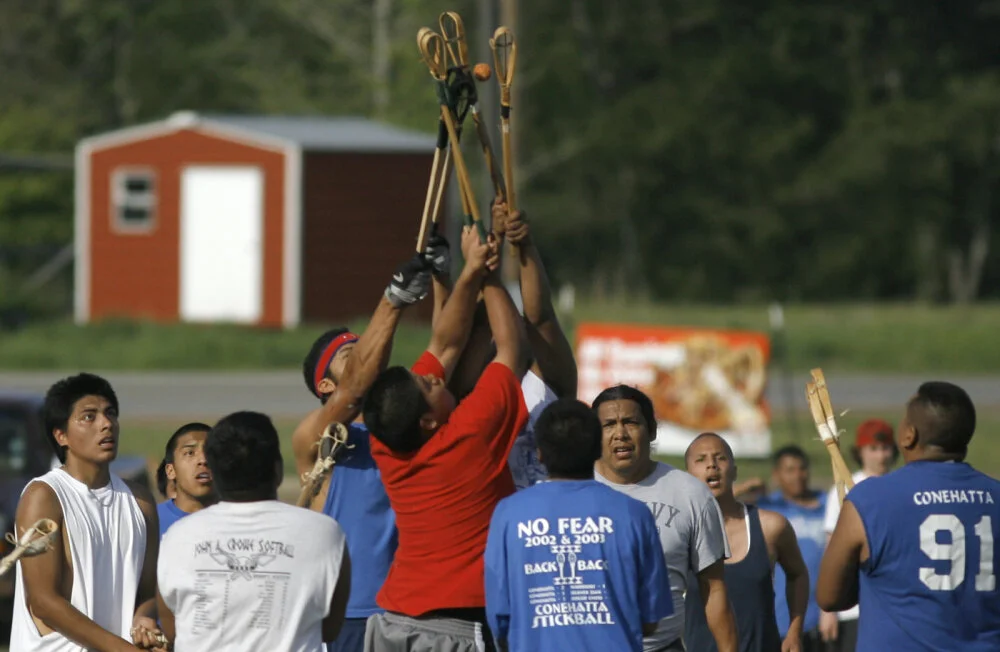STICKBALL

















All photos by: Lesley D Onstott
“We were born with stickball sticks in our hands.” - Greg Shoemake, Conehatta Mens Stickball Head Coach, 2011
From 2009 - 2014, Danielle Moore--a colleague and friend--and I traveled to the Choctaw Reservation outside Philadelphia, Mississippi, to learn, document and share the history and stories of Choctaw Stickball. This is an unfinished project with much potential as it delves into the importance of seeking approaches to non-violent resolution, as well as the ongoing disparities and social inequalities forced upon the Choctaw and so many other indigenous peoples in this country.
Each year, an annual fair centralizes around the Stickball Championship Games. People from neighboring towns travel to see the reservation teams, each representing a different community--typically denoted by geography--on the reservation.
Played without shoes or pads, the full contact game, now considered a sport and a predecessor of lacrosse, is now showcased in a version diluted from its original inception. A form of conflict resolution, as an alternative to war, the game traditionally spanned miles and days, at times resulting in deaths. It settled land disputes and tribal grievances. Today players lament the changes, such as the expansion of rules from one simple rule—don’t touch the ball—to a laundry list of potential player infractions. it is played on a football field and lasts roughly an hour with live commentary, half in Choctaw and half in English. But the speed, aggression and most of all skill is still on display as the players use two kabocca, hand-crafted sticks, to throw, catch and carry the towa, a golf ball-sized ball.
Throughout our research and filming, we followed several characters who live on the Choctaw reservation and are thus intrinsically connected to stickball. These men, women, youth, players, coaches, community members, historians primarily represent the Conehatta community and a myriad of perspectives and experiences. The passion for stickball, one of the few remaining traditions that provides a bridge between Choctaw and Western culture, runs deep and wide on the reservation. As Geno Mack said, “Dammit, I love stickball. And when I die, just put my damn sticks and my jersey in my casket and just drop me six feet below. And I’ll be alright.”



